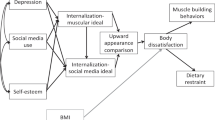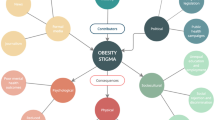Abstract
Background
Health mindsets can be viewed on a continuum of malleability from fixed (health cannot be altered) to growth (health can be affected by behavior). We propose that mindsets may influence the health perceptions of healthy adolescents as well as the health behaviors of adolescents with a chronic illness.
Methods
In Study 1, we surveyed healthy adolescents about their health mindsets and their judgments of illness in response to vignettes of fictional others. In Study 2, we measured the health mindsets and health behaviors of adolescents with type 1 diabetes
Results
In Study 1, healthy adolescents with a fixed health mindset were more likely to rate fictional others as being less healthy, less likely to recover, and more vulnerable to additional diseases. In Study 2, a growth mindset was associated with a greater frequency of glucose monitoring among younger, but not older, adolescents with type 1 diabetes. Further, growth mindset was associated with lower HbA1c levels for younger adolescents.
Conclusions
Health mindsets may shape views of the implications of illness or injury for overall health and, in adolescents with a chronic condition, may interact with age to influence health behaviors and outcomes.


Similar content being viewed by others
References
Blackwell LS, Trzesniewski KH, Dweck CS. Implicit theories of intelligence predict achievement across an adolescent transition: a longitudinal study and an intervention. Child Dev. 2007;78(1):246–63.
Chiu C, Dweck CS, Tong JY, et al. Implicit theories and conceptions of morality. J Pers Soc Psychol. 1997;73(5):923–40. https://doi.org/10.1037/0022-3514.73.5.923
Dweck C. Mindset: The New Psychology of Success. Random House Publishing Group; 2006.
Dweck CS, Chiu C, Hong Y. Implicit theories and their role in judgments and reactions: a world from two perspectives. Psychol Inq. 1995;6(4):267–85.
Dweck CS, Yeager DS. Mindsets: a view from two eras. Perspect Psychol Sci. 2019;14(3):481–96. https://doi.org/10.1177/1745691618804166
Erdley CA, Loomis CC, Cain KM, et al. Relations among children’s social goals, implicit personality theories, and responses to social failure. Dev Psychol. 1997;33(2):263–72. https://doi.org/10.1037/0012-1649.33.2.263
Heyman GD, Dweck CD, Cain KM. Young children’s vulnerability to self-blame and helplessness: relationship to beliefs about goodness. Child Dev. 1992;63(2):401. https://doi.org/10.1111/1467-8624.ep92070610204
Mangels JA, Butterfield B, Lamb J, et al. Why do beliefs about intelligence influence learning success? A social cognitive neuroscience model. Soc Cogn Affect Neurosci. 2006;1(2):75–86. https://doi.org/10.1093/scan/nsl013
Schleider JL, Abel MR, Weisz JR. Implicit theories and youth mental health problems: a random-effects meta-analysis. Clin Psychol Rev. 2015;35:1–9. https://doi.org/10.1016/j.cpr.2014.11.001
Bunda K, Busseri MA. Lay theories of health, self-rated health, and health behavior intentions. J Health Psychol. 2019;24(7):979–88. https://doi.org/10.1177/1359105316689143
Thai CL, Coa KI, Kaufman AR. Implicit theories of smoking and association with current smoking status. J Health Psychol. 2018;23(9):1234–9. https://doi.org/10.1177/1359105316648483
Joseph GP, Segovia NA, Wright RC, Mueller C, Tileston KR. Mindset correlates with health-related quality of life assessment in patients with adolescent idiopathic scoliosis [published online ahead of print, 2020 Nov 17]. Spine Deform. 2020. https://doi.org/10.1007/s43390-020-00243-w. https://doi.org/10.1007/s43390-020-00243-w
Burnette JL. Implicit theories of body weight: entity beliefs can weigh you down. Pers Soc Psychol Bull. 2010;36(3):410–22. https://doi.org/10.1177/0146167209359768
McFerran B, Mukhopadhyay A. Lay theories of obesity predict actual body mass. Psychol Sci. 2013;24(8):1428–36. https://doi.org/10.1177/0956797612473121
Orvidas K, Burnette JL, Russell VM. Mindsets applied to fitness: growth beliefs predict exercise efficacy, value and frequency. Psychol Sport Exercise. 2018;36:156–61. https://doi.org/10.1016/j.psychsport.2018.02.006
Sujka J, St Peter S, Mueller CM. Do health beliefs affect pain perception after pectus excavatum repair? Pediatr Surg Int. 2018;34(12):1363–7. https://doi.org/10.1007/s00383-018-4354-x
Kain A, Mueller C, Golianu BJ, Jenkins BN, Fortier MA. Parental health mindset and children’s surgical recovery. Pediatr Anesthesia. 2020. https://doi.org/10.1111/pan.14071
Ehrlinger J, Burnette JL, Park J, et al. Incremental theories of weight and healthy eating behavior: Ehrlinger et al. J Appl Soc Psychol. 2017;47(6):320–30. https://doi.org/10.1111/jasp.12439
John-Henderson NA, Tintzman CS, Counts CJ, Mueller CM. Health mindsets as a predictor of physical activity and body mass index in American Indian college students [published online ahead of print, 2020 Jan 27]. J Health Psychol. 2020;1359105319901284. https://doi.org/10.1177/1359105319901284
Susman EJ. Modeling developmental complexity in adolescence: hormones and behavior in context. J Res Adolesc. 1997;7(3):283–306. https://doi.org/10.1207/s15327795jra0703_3
Van Arendonk KJ, King EA, Orandi BJ, et al. Loss of pediatric kidney grafts during the “high-risk age window”: insights from pediatric liver and simultaneous liver-kidney recipients. Am J Transplant. 2015;15(2):445–52. https://doi.org/10.1111/ajt.12985
Karczewski SA, Keane M, Agarwal Berla N. Psychological Aspects and Challenges of Living with Chronic Kidney Disease for Adolescents. In: Haddad M., Winnicki E., Nguyen S. (eds) Adolescents with Chronic Kidney Disease. Springer, Cham; 2019. https://doi.org/10.1007/978-3-319-97220-6_2
Taddeo D, Egedy M, Frappier JY. Adherence to treatment in adolescents. Paediatr Child Health. 2008;13(1):19–24. https://doi.org/10.1093/pch/13.1.19
Helgeson VS, Vaughn AK, Seltman H, Orchard T, Libman I, Becker D. Featured article: trajectories of glycemic control over adolescence and emerging adulthood: an 11-year longitudinal study of youth with type 1 diabetes. J Pediatr Psychol. 2018;43(1):8–18. https://doi.org/10.1093/jpepsy/jsx083
King PS, Berg CA, Butner J, et al. Longitudinal trajectories of metabolic control across adolescence: associations with parental involvement, adolescents’ psychosocial maturity, and health care utilization. J Adolesc Health. 2012;50(5):491–6. https://doi.org/10.1016/j.jadohealth.2011.09.007
Horowitz JL, Garber J. The prevention of depressive symptoms in children and adolescents: a meta-analytic review. J Consult Clinl Psychol. 2006;74:401–15. https://doi.org/10.1037/0022-006X.74.3.401
Stice E, Shaw H, Marti CN. A meta-analytic review of obesity prevention programs for children and adolescents: the skinny on interventions that work. Psychol Bull. 2006;132:667–91. https://doi.org/10.1037/0033-2909.132.5.667
Burnette JL, Knouse LE, Vavra DT, O’Boyle E, Brooks MA. Growth mindsets and psychological distress: a meta-analysis. Clin Psychol Rev. 2020;77:101816. https://doi.org/10.1016/j.cpr.2020.101816
Robins RW, Pals JL. Implicit self-theories in the academic domain: Implications for goal orientation, attributions, affect, and self-esteem change. Self Identity. 2002;1:313–36. https://doi.org/10.1080/15298860290106805
Nunally JC. Psychometric theory. 2nd ed. New York: McGraw Hill; 1978.
Cortina JM. What is coefficient alpha? An examination of theory and applications. J Appl Psychol. 1993;78(1):98.
Levy SR, Stroessner SJ, Dweck CS. Stereotype formation and endorsement: the role of implicit theories. J Pers Soc Psychol. 1998;74:1421–36.
Foster NC, Beck RW, Miller KM, et al. State of Type 1 Diabetes Management and Outcomes from the T1D Exchange in 2016-2018 [published correction appears in Diabetes Technol Ther. 2019 Apr;21(4):230]. Diabetes Technol Ther. 2019;21(2):66-72.
Lachin JM, Orchard TJ, Nathan DM. Update on cardiovascular outcomes at 30 years of the diabetes control and complications trial/epidemiology of diabetes interventions and complications study. Diabetes Care. 2014;37(1):39–43. https://doi.org/10.2337/dc13-2116
Elgart JF, González L, Prestes M, Rucci E, Gagliardino JJ. Frequency of self-monitoring blood glucose and attainment of HbA1c target values. Acta Diabetol. 2016;53(1):57–62. https://doi.org/10.1007/s00592-015-0745-9
American Diabetes Association. 6. Glycemic Targets: Standards of Medical Care in Diabetes-2021. Diabetes Care. 2021;44(Suppl 1):S73-S84. https://doi.org/10.2337/dc21-S006
Ziegler R, Heidtmann B, Hilgard D, et al. Frequency of SMBG correlates with HbA1c and acute complications in children and adolescents with type 1 diabetes. Pediatr Diabetes. 2011;12(1):11–7. https://doi.org/10.1111/j.1399-5448.2010.00650.x
Blum RW, Stark T. Cognitive development in adolescence. Clinical cues and implication. Semin Adolesc Med. 1985;1(1):25–32.
Chung SJ, Ersig AL, McCarthy AM. The influence of peers on diet and exercise among adolescents: a systematic review. J Pediatr Nurs. 2017;36:44–56. https://doi.org/10.1016/j.pedn.2017.04.010
King KM, King PJ, Nayar R, Wilkes S. Perceptions of adolescent patients of the “lived experience” of type 1 diabetes. Diabetes Spectr. 2017;30(1):23–35. https://doi.org/10.2337/ds15-0041
Yeager DS, Hanselman P, Walton GM, et al. A national experiment reveals where a growth mindset improves achievement. Nature. 2019;573:364–9. https://doi.org/10.1038/s41586-019-1466-y
Acknowledgements
The authors would like to acknowledge the helpful comments of Carol Dweck PhD and David Maahs MD to earlier versions of this manuscript.
Author information
Authors and Affiliations
Corresponding author
Ethics declarations
Ethical Approval
All procedures performed in studies involving human participants were in accordance with the ethical standards of the institutional and/or national research committee and with the 1964 Helsinki declaration and its later amendments or comparable ethical standards.
Informed Consent
Informed consent was obtained from all individual participants included in the study.
Conflict of Interest
The authors declare that they have no conflict of interest.
Additional information
Publisher’s Note
Springer Nature remains neutral with regard to jurisdictional claims in published maps and institutional affiliations.
Supplementary Information
Below is the link to the electronic supplementary material.
Rights and permissions
About this article
Cite this article
John-Henderson, N.A., Wright, R.C., Manke, K.J. et al. The Influence of Health Mindset on Perceptions of Illness and Behaviors Among Adolescents. Int.J. Behav. Med. 28, 727–736 (2021). https://doi.org/10.1007/s12529-021-09972-2
Accepted:
Published:
Issue Date:
DOI: https://doi.org/10.1007/s12529-021-09972-2




